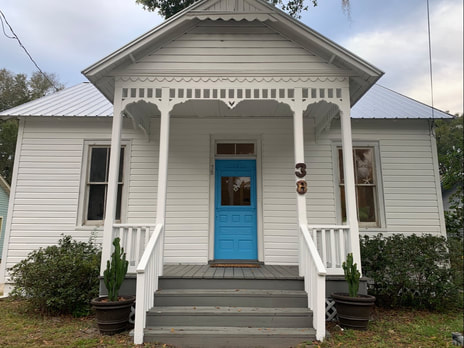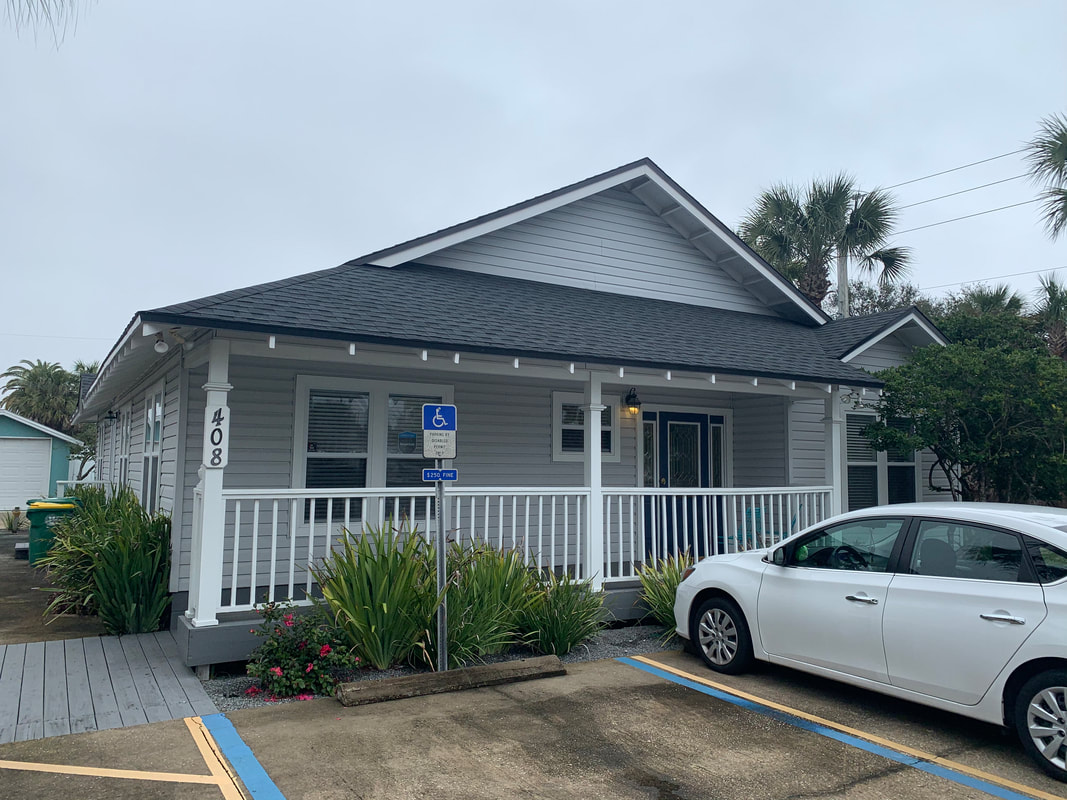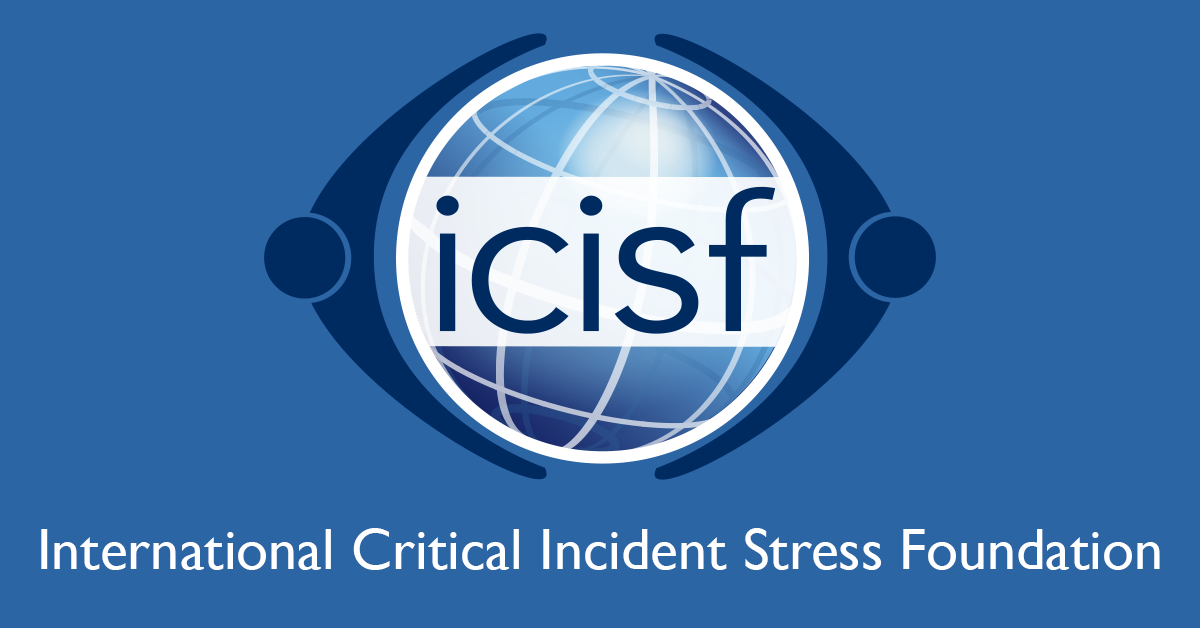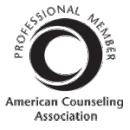|
"In this world there will be trouble." My heart knows this full well. Not too long ago, every morning, I would wake up with a pack of spider monkeys waiting to pounce on me. They seemed to gather in the form of concerns, worries, anxiety and stress. Concerns that could grow into worries. Worries that might produce anxious feelings. Anxious feelings that so easily would morph into stress manifesting in my body. And there is a tempter who can scream into the flurry of my troubled heart. It leans in close and shouts, "Get busy!" And how many days do I obey? Far too many. There is another voice who whispers an alternative pathway, inviting me to suspend my busy spinning mind by entering the day through the gateway of my heart. God does not desire for me to ignore the trouble. No, if anything, God is inviting me into a deeper engagement with what troubles my heart. His invitation is into my fear. "I have told you these things, so that in me you may have peace. In this world you will have trouble. But take heart! I have overcome the world." In a world of peacekeeping, God is in the business of peacemaking. What's the difference? Peacekeeping is a fear based avoidance. Peacemaking is a deep soulful engagement. Peacekeepers avoid telling you hard things in order to avoid upsetting the apple cart. They tip toe around the awkward truth. This is not love. It is the opposite of love...it's apathy. Peacemakers speak the truth in love. They speak up when its uncomfortable and work for the shalom of the world. They graciously enter into the troubled space with a whole heart. This is risky love. It's messy but worth it. Being a peacemaker involves diplomacy - which begins and ends with the "fruit if the spirit.“ Any voice (yours or any other) that do not sound like love, joy, peace, forbearance, kindness, goodness, faithfulness, gentleness and self-control is the voice of the accuser. May you join me in embracing fear, pushing into the dark of our discomfort. May we also take courage in the truth of what professor and priest, Barbara Brown Taylor suggests in her helpful book "Learning to Walk in the Dark." "New life starts in the dark. Whether it is a seed in the ground, a baby in the womb, or Jesus in the tomb, it starts in the dark.” —Barbara Brown Taylor
0 Comments
I recently received an email from a young woman interested in exploring Christian Counseling as her calling and profession. Here are the six questions she asked me that I really needed to be asked.
1. What steps did you have to make to get to where you are? What colleges did you go to and what degrees did you get? I went to Flagler College, studied English and Youth Ministry, which were both infused with professors and students who were deeply interested in spiritual formation and human flourishing.Before attending graduate school, my wife and I were on staff with Young Life and the local church for 20 years. During countless hours of one on one appointments with students or parents, I consistently found myself addressing family situations with them such as dealing with a parent’s divorce, sexual abuse, facing family wounds from the past that had never healed, dating, marriage, etc. Seeing these needs, I sensed a calling to pursue advanced psychological studies and devote my life to helping people conquer life issues. In 2011, I received my Master of Arts degree in Marriage and Family Therapy from Richmont Graduate University. Over the past 20 years (in youth ministry and in private practice), I have counseled individuals, children, adolescents, families and couples with a variety of presenting issues pastorally and as a lay counselor. For over eight years, my work with ETCC has involved these, as well as other types of presenting issues. Bachelors Degree + Graduate School + 3000 supervised counseling hours + National Mental Health Counselor Examination (NMHCE) + a handful of Florida Board of Health requirements = Licensure as Licensed Mental Health Counselor 2. How many years did it take for you to get there? I started graduate school in September 2007 and graduated in May 2011. It took four years because I was also working full time as a Youth Minister at a large church in Chattanooga, TN. I elected to remain in weekly post-gardaute supervision for 5 years ($75 per week) while in private practice. When I moved to Florida in summer of 2017, I hit the ground running and prepared for the NMHCE, passed it, handled a number of state requirements and received my Florida license in April 2018. Florida was generous to receive all of my work in Tennessee as eligible work toward my FL license. I started seeing clients in my 4th year of grad school, but my Masters in Marriage and Family Therapy was 97 hours where the Professional Counseling degree was 66. In that last year of school you would begin seeing clients as a graduate intern. Right now I have 3 graduate interns seeing clients earning hours toward their degrees. *Clarification: You can move through a graduate counseling program in mental health counseling full time in 2 years. You'll have a minimum of 2 years of supervision beyond graduation which then can lead to licensure. So, four years if you aggressive and do not have an other irons in the fire. 3. What's the hardest part(s) of your job? There are a number of challenging parts to the job. One is the learning curve to discern what clients are in your wheelhouse and which ones are not. Learning to refer to qualified colleagues becomes a wonderful way to grow your network, develop some partnerships and cultivate a referral base (both give and receiving). Another dimension is definitely financial. Launching a private practice takes time, which also means it takes some money. I launched Elbow Tree last fall in August and it has been my all consuming focus, even when I was not making money for my time. Thankfully I embedded in with my best friend in his practice in the early stages of when he launched Elbow Tree in Chattanooga. I still had to learn all the in’s and out’s of launching a private practice from basic bookkeeping, marketing, networking, while also continuing to sharpen my therapeutic skill beyond graduation. Being in a counseling practice that cultivates competent and compassionate emerging counselors is something I desired and am hoping to cultivate here in St. Augustine. One other dimension could be loneliness. So much of your day as a therapist is spent with clients and many therapists report feeling lonely in the work as so many are hanging a shingle as a solo practitioner. That is another dimension to why I launched Elbow Tree here. I need community and wanted to be able to choose who I surround myself with. Our counseling team is a wonderfully gifted and skilled community of Christian counselors who have/are continuing to hopefully be formed into Christ’s likeness in and away from our counseling work. Self care is every counselor’s highest need and yet, often, it can become shuffled to back of the list of priorities. I ask everyone of our counselors to describe in writing to me how they are actively cultivating their 6 month "self care plan" and we check in on that when we grab tacos or coffee together. I am chief sinner in this area and need the accountability, which I work on with a mentor in my own life. 4. While I know it must be a hard job, do you guys enjoy it? Do you think it's worth it? I love it. Being trained as a Christian Counselor is a professional pivot that will prepare you to serve the world and God’s church in some specialized ways. You effectively would be preparing yourself to become a mobile missionary with a highly specialized set of skills that will serve a multidimensional target audience. I work with pastors and missionaries who are exhausted and broken to entrepreneurs who feel lost in their sense of purpose to families struggling to love one another well to deploying into 3rd world global disaster zones to offer critical incident stress management and post traumatic interventions. It is not for everybody. If you struggle with offering empathy and compassion, I’d urge you away from this space into something else. If you have a hyper need to be needed then I’d recommend doing some deep inner work around that with a competent therapist. If you have good boundaries and a deep heart for walking slowly with people as people heal and begin to reorient toward flourishing, then this is the place for you. To speak of its worth would never be able to declare the truest and highest sense of the need and worth…the Holy Spirit refers to Itself as Comforter, Counselor and Friend…and while we are not abdicating or taking on the role of the Holy Spirit as junior holy spirits, we will most definitely image (aka look like) God most when we orient toward people with lovingkindness, gentleness, non-judgement, warmth, curiosity and empathy. It’s God’s kindness that leads us to repentance…(aka it’s God’s kindness that captures our heart, opens us up to change, walks with us into the most painful patterns we have developed and invites us to hope in the ongoing work of Christ even when our traumatic injuries tell our bodies and minds that we need that old pattern or attachment). 5. What is the demand for Christian Counselors in today's world? I have many friends who are amazing Christians who do not fly under the banner of Christian in their counseling practices. It’s a rigorous process to decide which you will choose in order to serve the clients you feel most called to serve. In my work, I feel particularly called to be a beacon for the local Church and then to the surrounding community. If Christians are seeking wellness in our world they will look more like the Jesus we love and then the world will see and know the beauty of Jesus radiating in His healing community…who also invite people broken, sick and sore into their midst. Hurt people hurt people. In and out of the church. I also believe that healing people heal people…so if our church can orient toward healing and cultivating this ethos among themselves, then those outside the church may feel drawn to the depth of inner hope that would inevitably leak from the believers. So, that is why I target pastors and missionaries…caring for caregivers…if these elders among us have permission to be broken and imperfect then we too will find a safe place in them and the believers can come out of hiding and become open to vulnerability…which is the birthplace of human and heavenly innovation and change. Jesus modeled vulnerability among from the moment he was born unto His dying breath. The world desperately needs highly competent skilled clinicians who are dispersed into the entire work force…bringing this ethic of deep heavenly care into those paces. I moved to St. Augustine with the stated intent of opening Elbow Tree as a beacon for Christians…and I was honestly really worried that being overtly Christian would be a hindrance to the growth of my business. There is a need for Christians to be highly skilled when caring for the multi-dimensional needs of our hurting world. Counselors are sharp instruments that God can use to serve a deeply traumatized and aching culture…to speak to the truths revealed in research and science…and the scriptures...and to operate using the best trauma informed best practices as they serve clients well. The need is absolutely enormous…some markets are certainly saturated. So, find a community who has an unmet need that is not being met. St. Augustine was this place for me. 6. Is the money that you are earning now sufficient for living? Yes. It takes time so you’ll need something to float you while you get things up and running. Every person’s needs are different but I can tell you that if you are creative and patient, the Lord will use those gifts and strengths to help you provide in ways you could never imagine. If you’d ever like to talk more, feel free to email or call. I’m always eager to speak with interested counseling students If you are reading this and think you'd like to have a conversation like this, please email me at [email protected]. |
ELBOW TREEArchives
July 2023
Categories
All
|



 RSS Feed
RSS Feed














